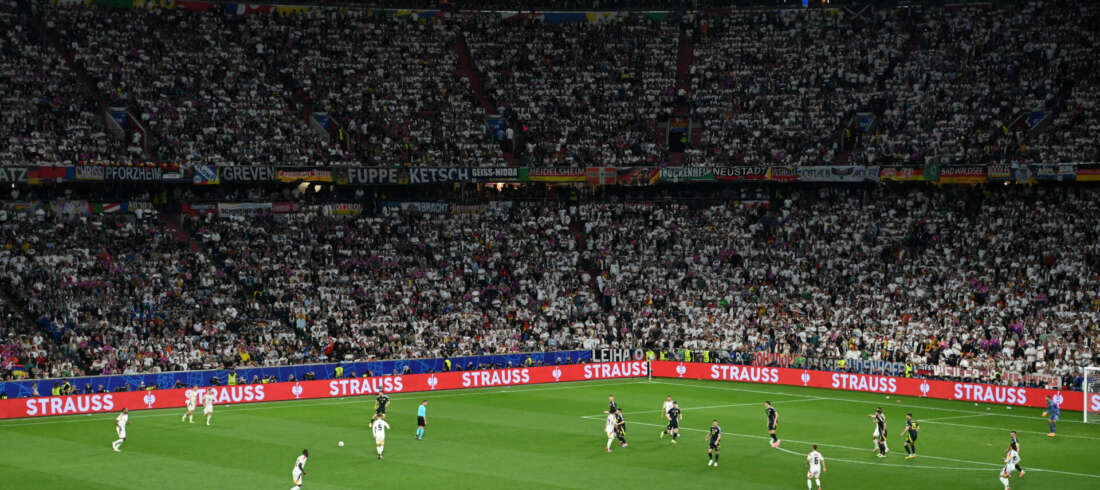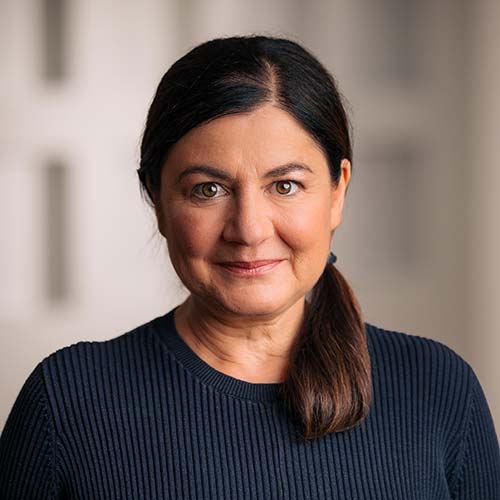Major sporting events such as the current European Football Championship in Germany are audience highlights and therefore popular advertising platforms. Nevertheless, the financial commitment is not without controversy. For example, the strong presence of Chinese investors has been the subject of public debate since the beginning of the European Championships. Against this backdrop, the renowned rheingold Institute conducted a flash study on behalf of one of the three German European Championship sponsors, the workwear manufacturer Strauss. The study investigated the impact of sponsorship in the context of the UEFA European Championship 2024.
Brand awareness crucial for international players
A key finding of both the qualitative and the representative flash survey of European Championship spectators in Germany (N=1426): Brands that are close to everyday life and domestic brands such as Strauss and LIDL scored particularly well with the European Championship audience and were perceived as appropriate for the tournament. 62% (top 2 value) of those watching the European Championships think it is particularly good that Engelbert Strauss is involved in the tournament in view of the numerous Chinese sponsors (28% abstention). International brands performed better if they were already known to the public beforehand. Unknown brands were often ignored in the perception. Perimeter advertising came off particularly badly when only Chinese characters were shown. Nevertheless, 52% of European Championship viewers believe that the financial support of international sponsors is necessary for the success of the European Championship (28% abstained).
Domestic beats Asian by values
In the flash study, consisting of a representative quantitative "omnibus" survey and an open exploration in group interviews (two groups of 6 participants each), the rheingold Institute asked about attitudes towards sponsorship and the evaluation of various sponsors. The results showed that fans generally have a more positive attitude towards domestic companies than Asian sponsors. Specifically, the respondents attributed a stronger value orientation to German companies in their advertising activities.
EM commitment provides a positive surprise
"Particularly in the qualitative survey, the test subjects were positively surprised to find a German family business among the main sponsors," says study director Heiko Schmelz. Overall, the majority of respondents wanted to see more German players in sponsorship. Overall, the European Championships in their own country were described as a sporting event that allows them to forget the worries of everyday life and the omnipresent crises for a moment and provides more lightness. The unifying sense of community during the European Championships was particularly emphasized, which was well embodied by the Strauss brand - "whether manager or craftsman, everyone is the same at the European Championships and cheers along," said one respondent in the survey.
Presence of German companies shows the strength of the economy
The presence of German companies shows strength in the face of many open "construction sites" in this country. Engelbert Strauss as a German family business and craftsman's brand was perceived as a good match for the tournament and the good performance of the German national team. Of those watching the European Championship, 54% rated Engelbert Strauss as trustworthy compared to the other sponsors (37% abstained) and 55% as quality-oriented (with 36% abstaining). Especially in contrast to Chinese retail companies such as Alibaba (Alipay+ and AliExpress) or the sports betting provider Betano, the value orientation as well as the proximity and relevance to everyday life of the domestic brands were welcomed. In the case of Alibaba, fans often did not feel addressed, whereas in the case of Betano, the values represented were strongly questioned and considered a problematic message in view of the risk of gambling addiction. The example of Temu was also viewed critically when advertising around the European Championships became too prominent and was perceived as "annoying" or "intrusive".
Strauss as an encouraging brand
Strauss, which has been advertising its workwear in soccer for more than a decade and a half, traditionally structures its commitments as a partnership and pursues the goal of communicating the owner-managed company's value orientation through sponsorship. "Strauss is an encouraging brand," says CEO and Head of Brand Henning Strauss and is satisfied with the effect of the sponsorship. The Strauss bird stands for tackling, doing, for effectiveness. The company also presented this brand promise in the context of UEFA EURO 2024. "To a certain extent, we represent the German economy and its strength. This is perceived as refreshing in the context of numerous Asian sponsors".





